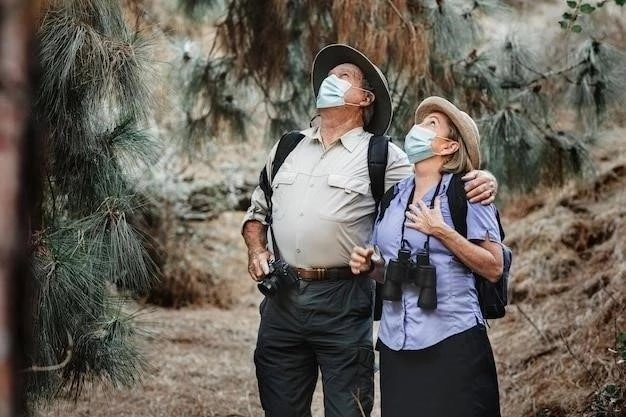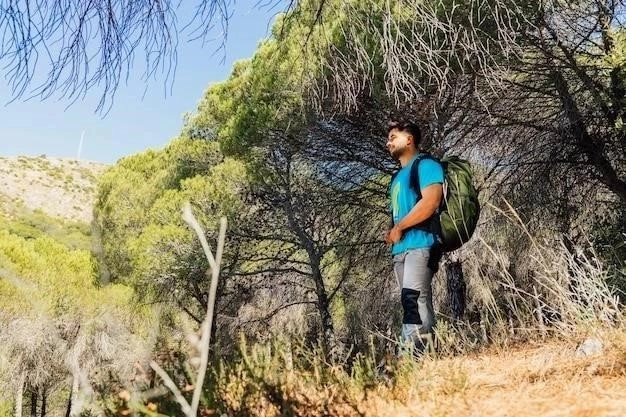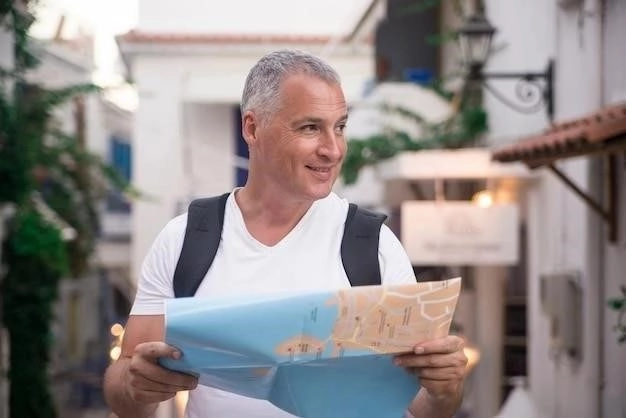With its captivating landscapes, vibrant cities, and rich cultural heritage, Nigeria offers a unique and unforgettable travel experience. From the bustling streets of Lagos to the serene beauty of the Mambilla Plateau, this West African nation is brimming with opportunities for exploration and discovery.
Planning Your Trip
Embarking on a journey to Nigeria requires careful planning to ensure a smooth and enriching experience. Begin by deciding on your preferred travel style and interests. Are you seeking adventure in nature, immersion in vibrant cities, or a cultural deep dive? Nigeria offers something for everyone, but understanding your priorities will help shape your itinerary.
Once you have a general idea of what you want to see and do, research the best time to visit based on your interests and the regions you plan to explore. Nigeria has a tropical climate with distinct wet and dry seasons, which can significantly impact your travel experience. Consider factors such as temperature, rainfall, and the occurrence of specific festivals or events.
Next, delve into the visa requirements for entering Nigeria. Ensure you have a valid passport with sufficient remaining validity and obtain the necessary visa well in advance. Familiarize yourself with any health regulations or recommended vaccinations to safeguard your well-being throughout your trip. Finally, research and book suitable accommodations, transportation, and guided tours, if desired, to create a well-structured and enjoyable travel plan.
Visa Requirements

Prior to embarking on your journey to Nigeria, it is essential to ensure you possess the necessary travel documentation, including a valid visa. Visa requirements vary depending on your nationality. Citizens of certain countries may be eligible for visa-free entry or visa-on-arrival options, while others are required to obtain a visa in advance from a Nigerian embassy or consulate in their home country.
To determine the specific visa requirements applicable to your nationality, it is advisable to consult the website of the Nigerian Immigration Service or contact the nearest Nigerian embassy or consulate. Generally, visa applications require a valid passport with at least six months of remaining validity, a completed visa application form, passport-sized photographs, proof of accommodation, and evidence of sufficient funds to cover your stay in Nigeria.
It is crucial to apply for your visa well in advance of your intended travel dates, as processing times can vary. Ensure that you meet all the requirements and provide accurate information to avoid any delays or complications. Additionally, it is recommended to have copies of all your travel documents, including your visa, and keep them separate from your original documents while traveling in Nigeria.
Best Time to Visit
Nigeria, with its tropical climate, offers pleasant travel conditions year-round, but the best time to visit depends largely on your desired experiences and the specific regions you plan to explore. The country experiences two primary seasons: a wet season and a dry season.
The dry season, typically from November to April, is characterized by lower humidity, sunny skies, and minimal rainfall. This period is generally considered the best time for outdoor activities, wildlife viewing in national parks, and exploring coastal areas. However, it’s important to note that temperatures can be quite high, especially in the northern regions.
The wet season, from May to October, brings rainfall, which can range from light showers to heavy downpours. While the rain may deter some outdoor pursuits, it also transforms the landscapes, creating lush greenery and potentially enhancing certain attractions like waterfalls. If you’re interested in experiencing cultural festivals or don’t mind occasional rain, this season can offer a unique perspective.
Getting Around
Navigating Nigeria’s diverse landscapes and bustling cities requires familiarity with its transportation options, each offering advantages depending on your itinerary and budget. Domestic flights are a convenient way to cover large distances, connecting major cities like Abuja, Lagos, and Calabar. Numerous airlines operate scheduled flights, providing flexibility and efficiency for travelers with time constraints.

For shorter journeys or exploring specific regions in greater depth, road transportation is a viable option. Interstate buses connect towns and cities, offering an economical and immersive way to witness the country’s diverse landscapes. However, road conditions and travel times can vary, so it’s advisable to factor in potential delays. Within urban areas, taxis and ride-hailing services are readily available, providing convenient point-to-point transportation.
When using taxis, ensure they are registered and negotiate fares beforehand. For a more localized experience, consider using danfos, privately owned minibuses, which ply specific routes within cities and towns. While affordable, they can be crowded and require familiarity with local routes.
Top Tourist Attractions
Nigeria, a land of immense natural beauty and cultural richness, offers a captivating array of tourist attractions that cater to diverse interests. Nature enthusiasts can marvel at the cascading waters of Erin Ijesha Waterfall, embark on a wildlife safari in Yankari National Park, or ascend the breathtaking heights of Obudu Mountain Resort, renowned for its cool climate and panoramic views.
History and culture buffs will find themselves captivated by ancient cities, monuments, and archaeological treasures scattered across the country. Explore the iconic Olumo Rock in Abeokuta, a historical fortress that once provided refuge during intertribal wars. Immerse yourself in the vibrant art scene of Lagos at the Nike Art Gallery, home to an extensive collection of contemporary Nigerian art.
Discover the historical significance of the Benin City Walls, a UNESCO World Heritage site that stands as a testament to the Benin Empire’s architectural prowess. Whether you seek natural wonders, cultural immersion, or historical insights, Nigeria’s top tourist attractions promise an unforgettable journey of discovery.
Abuja: The Capital City
Abuja, Nigeria’s meticulously planned capital city, stands as a testament to modern architecture and urban design. Nestled amidst rolling hills in the heart of the nation, Abuja offers a refreshing contrast to the bustling energy of Lagos. The city’s wide boulevards, adorned with lush greenery and impressive government buildings, create a sense of grandeur and tranquility.
A visit to Abuja is incomplete without witnessing the iconic Aso Rock, a massive monolith that dominates the skyline and lends its name to the presidential villa. Explore the vast expanse of Millennium Park, a serene oasis perfect for leisurely strolls, picnics, or simply soaking in the city’s ambiance. Discover the vibrant art scene at the Thought Pyramid Art Centre, home to contemporary and traditional Nigerian art, or delve into the country’s cultural heritage at the National Museum.
Abuja’s well-maintained infrastructure, including a modern airport and efficient transportation system, ensures ease of travel for both business and leisure visitors. Whether you seek cultural immersion, architectural marvels, or a taste of urban sophistication, Abuja offers a captivating blend of modernity and Nigerian charm.

Lagos: The City of Aquatic Splendor
Lagos, a sprawling metropolis situated on the Atlantic coast, pulsates with an irresistible energy that draws visitors into its vibrant tapestry of urban life and coastal charm. Known as Nigeria’s economic and cultural powerhouse, Lagos offers a captivating blend of historical intrigue, modern amenities, and a thriving arts and entertainment scene.
Explore the bustling markets and historical landmarks of Lagos Island, the city’s historic heart. Discover the architectural grandeur of the Cathedral Church of Christ, a testament to colonial-era design. Immerse yourself in the vibrant arts and culture scene at the Freedom Park, a former colonial prison transformed into a hub for creative expression.
Indulge in the city’s renowned culinary delights, from street food stalls offering savory suya and puff-puff to upscale restaurants serving international cuisine. Whether you seek the vibrant energy of urban life, the allure of historical sites, or the rhythmic beats of Afrobeat music, Lagos promises an unforgettable experience in the heart of Nigeria’s coastal splendor.
Calabar: A City of Heritage and Celebrations
Calabar, a coastal city steeped in history and renowned for its vibrant cultural celebrations, beckons travelers with its unique blend of heritage and festivity. Located in southeastern Nigeria, Calabar served as a major trading port during the transatlantic slave trade, leaving an indelible mark on its historical tapestry.
Today, visitors can delve into this poignant past at the Slave History Museum, housed in a former slave trading warehouse, which offers a sobering glimpse into the horrors of the era. Beyond its historical significance, Calabar is celebrated for its lively festivals, none more so than the renowned Calabar Carnival. Held annually in December, the carnival transforms the city into a kaleidoscope of colors, music, and dance, attracting visitors from across the globe.
Explore the city’s colonial architecture, stroll through the serene Botanical Gardens, or venture to the nearby Agbokim Waterfalls for a refreshing escape amidst nature’s embrace. Calabar’s blend of heritage and celebrations promises a captivating experience that lingers long after the festivities subside.
Mambilla Plateau: The Ultimate Nigerian Adventure
For travelers seeking an off-the-beaten-path adventure, the Mambilla Plateau beckons with its breathtaking landscapes, cascading waterfalls, and a sense of serenity found nowhere else in Nigeria. Situated in Taraba State, this highland region offers a dramatic departure from the country’s bustling cities and coastal plains.

Embark on a scenic road trip through rolling hills, tea plantations, and traditional villages, where time seems to move at a slower pace. Hike to the summit of Chappal Waddi, Nigeria’s highest peak, and marvel at the panoramic views that stretch across the plateau. Explore the cascading waters of Mambilla Tourist Village, a series of waterfalls that plunge into verdant gorges, creating a mesmerizing spectacle of nature’s power.
The Mambilla Plateau offers a sanctuary for nature enthusiasts and adventure seekers alike, with opportunities for hiking, birdwatching, and simply soaking in the tranquility of this unspoiled paradise.
Ilorin: The City of History and Culture
Nestled in the heart of Nigeria, Ilorin stands as a testament to the country’s rich history and enduring cultural heritage. As the capital of Kwara State, Ilorin seamlessly blends its ancient roots with a modern, cosmopolitan outlook, offering visitors a unique glimpse into the soul of Nigeria.
At the heart of Ilorin’s cultural tapestry lies the Emir’s Palace, an architectural masterpiece that reflects the city’s royal heritage. Explore the palace grounds, adorned with intricate carvings and vibrant colors, and witness the traditional Durbar festival, a colorful equestrian parade that celebrates Islamic holidays.
Delve into Ilorin’s artistic spirit at the National Museum, home to a diverse collection of artifacts, or explore the vibrant markets, where traditional crafts, textiles, and spices tantalize the senses. Ilorin invites travelers to experience the warmth of Nigerian hospitality while discovering the treasures of its rich historical and cultural legacy.
Nature and Wildlife

Beyond its vibrant cities and cultural heritage, Nigeria harbors a wealth of natural wonders and diverse wildlife, offering a captivating escape for nature enthusiasts and adventure seekers. From sprawling national parks to hidden waterfalls and serene plateaus, the country’s natural landscapes are as diverse as its people.
Embark on a thrilling safari in Yankari National Park, home to elephants, lions, giraffes, and a myriad of bird species. Hike through the lush rainforests of Cross River National Park, renowned for its population of endangered gorillas and chimpanzees. Discover the cascading waters of Erin Ijesha Waterfall, a breathtaking spectacle of nature’s power.
Whether you seek thrilling wildlife encounters, serene nature walks, or simply a moment of tranquility amidst breathtaking scenery, Nigeria’s natural wonders promise an unforgettable journey of discovery.
National Parks and Reserves
Nigeria is home to a diverse network of national parks and reserves that protect its incredible biodiversity and offer unparalleled opportunities for wildlife viewing and nature exploration. These protected areas encompass a wide range of ecosystems, from savannah grasslands and rainforests to montane forests and wetlands.
Yankari National Park, located in Bauchi State, is one of Nigeria’s most renowned wildlife destinations. Embark on a thrilling game drive to spot elephants, lions, giraffes, waterbucks, and a plethora of bird species. Explore the park’s hot springs and ancient rock formations, adding a touch of geological wonder to your adventure.
For those seeking primate encounters, Cross River National Park, spanning Cross River and Akwa Ibom states, is a must-visit. Trek through dense rainforests in search of endangered gorillas and chimpanzees while immersing yourself in the park’s rich biodiversity.

Beaches and Waterfalls
Nigeria’s coastline, stretching along the Atlantic Ocean, boasts a diverse collection of beaches, each offering a unique blend of relaxation, recreation, and natural beauty. From pristine stretches of white sand to secluded coves framed by swaying palm trees, there’s a beach to suit every traveler’s preference.
For a taste of beachside bliss, head to Lagos, where you’ll find popular spots like Tarkwa Bay, Elegushi Beach, and Oniru Beach. These lively destinations offer opportunities for swimming, sunbathing, beach volleyball, and indulging in fresh seafood. Inland, Nigeria’s varied topography gives rise to a spectacular array of waterfalls, each a testament to nature’s artistry.
Witness the cascading torrents of Erin Ijesha Waterfall, often referred to as “Olumirin Waterfall,” as it plunges from a towering cliff face into a serene pool below. Explore the scenic beauty of Agbokim Waterfalls, a series of seven waterfalls that cascade through lush rainforest, creating a mesmerizing symphony of sound and sight.
Culture and Heritage
Nigeria’s cultural heritage is as rich and diverse as its landscapes, reflecting the traditions, artistry, and historical narratives of its numerous ethnic groups. From ancient kingdoms and colonial influences to contemporary art and vibrant festivals, a journey through Nigeria is an immersion into a tapestry of cultural expressions.
Explore the ancient city of Benin, once the heart of a powerful empire, and marvel at the intricate bronze castings and sculptures that stand as a testament to its artistic legacy. Immerse yourself in the vibrant traditions of the Yoruba people in Osun State, where the Osun-Osogbo Sacred Grove, a UNESCO World Heritage site, honors the Yoruba goddess of fertility.
Experience the warmth of Nigerian hospitality, renowned for its welcoming spirit and vibrant celebrations of life. Engage with local communities, attend traditional ceremonies, and savor the flavors of Nigerian cuisine, a delicious fusion of spices and flavors that tantalize the palate.
Festivals and Events
Nigeria’s cultural tapestry is woven with a vibrant thread of festivals and events that celebrate its diverse heritage, religious traditions, and artistic expressions. Throughout the year, the country comes alive with colorful processions, rhythmic music, and captivating performances that offer a glimpse into the heart of Nigerian culture.
Witness the grandeur of the Durbar festival, celebrated in several northern Nigerian cities, where horsemen adorned in elaborate regalia parade through the streets, showcasing their equestrian skills and paying homage to traditional rulers. Immerse yourself in the spiritual fervor of the Osun-Osogbo Festival, a two-week-long celebration held annually in Osun State, honoring the Yoruba river goddess Osun.
Experience the creative energy of the Ake Arts and Book Festival, a celebration of literature, music, dance, and visual arts held in Abeokuta, the hometown of renowned writer Wole Soyinka.
Museums and Historical Sites
Nigeria’s historical tapestry is woven through a captivating collection of museums and historical sites that offer glimpses into its ancient civilizations, colonial past, and cultural evolution. From archaeological wonders to preserved colonial architecture, these repositories of history and heritage provide insights into the nation’s multifaceted narrative.
In Lagos, delve into the depths of Nigerian art and history at the National Museum, home to an extensive collection of artifacts, including traditional sculptures, masks, and archaeological finds. Journey back in time at the Freedom Park, a former colonial prison transformed into a memorial and cultural space that commemorates Nigeria’s struggle for independence.
Explore the ancient city of Kano, renowned for its well-preserved city walls, the Emir’s Palace, and the Kurmi Market, a bustling hub of traditional crafts and commerce. Discover the historical significance of Badagry, once a major slave trading post, and visit the poignant relics of the slave trade era, including the Mobee Slave Relics Museum and the Vlekete Slave Market Museum.

Local Cuisine
A journey through Nigeria is incomplete without savoring the diverse and flavorful tapestry of its local cuisine. From aromatic stews and spicy suya to flavorful soups and starchy staples, Nigerian food is a celebration of fresh ingredients, bold flavors, and the country’s rich culinary heritage.
Indulge in the national dish, Jollof Rice, a flavorful one-pot rice dish cooked in a rich tomato-based sauce with onions, peppers, and spices, often accompanied by chicken, beef, or fish. Sample Suya, a popular street food consisting of skewered and grilled meat, seasoned with a blend of ground peanuts, spices, and chili pepper.
Experience the comforting flavors of Egusi Soup, a rich soup thickened with ground melon seeds and enriched with leafy greens, meat or fish, and often served with pounded yam or fufu. Whether you’re dining at a bustling street food stall or an upscale restaurant, Nigerian cuisine promises a delightful culinary adventure that tantalizes the taste buds and leaves a lasting impression.










